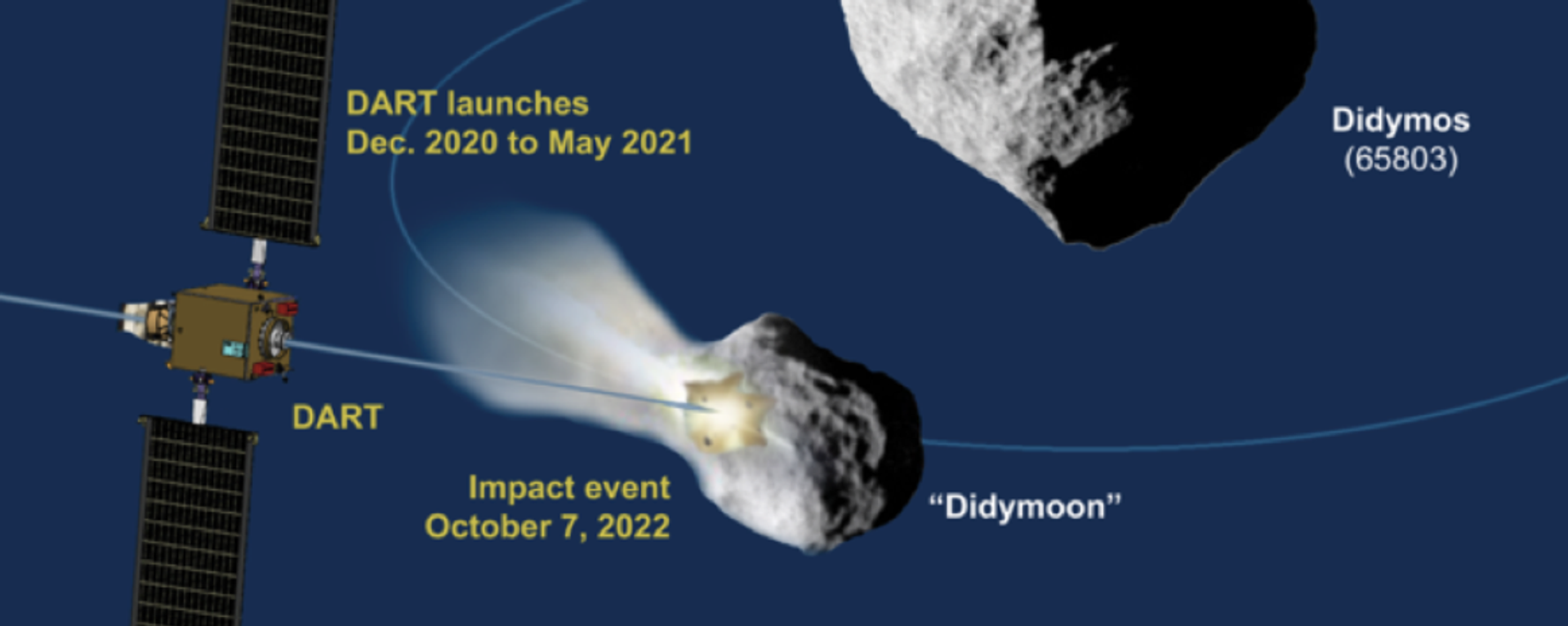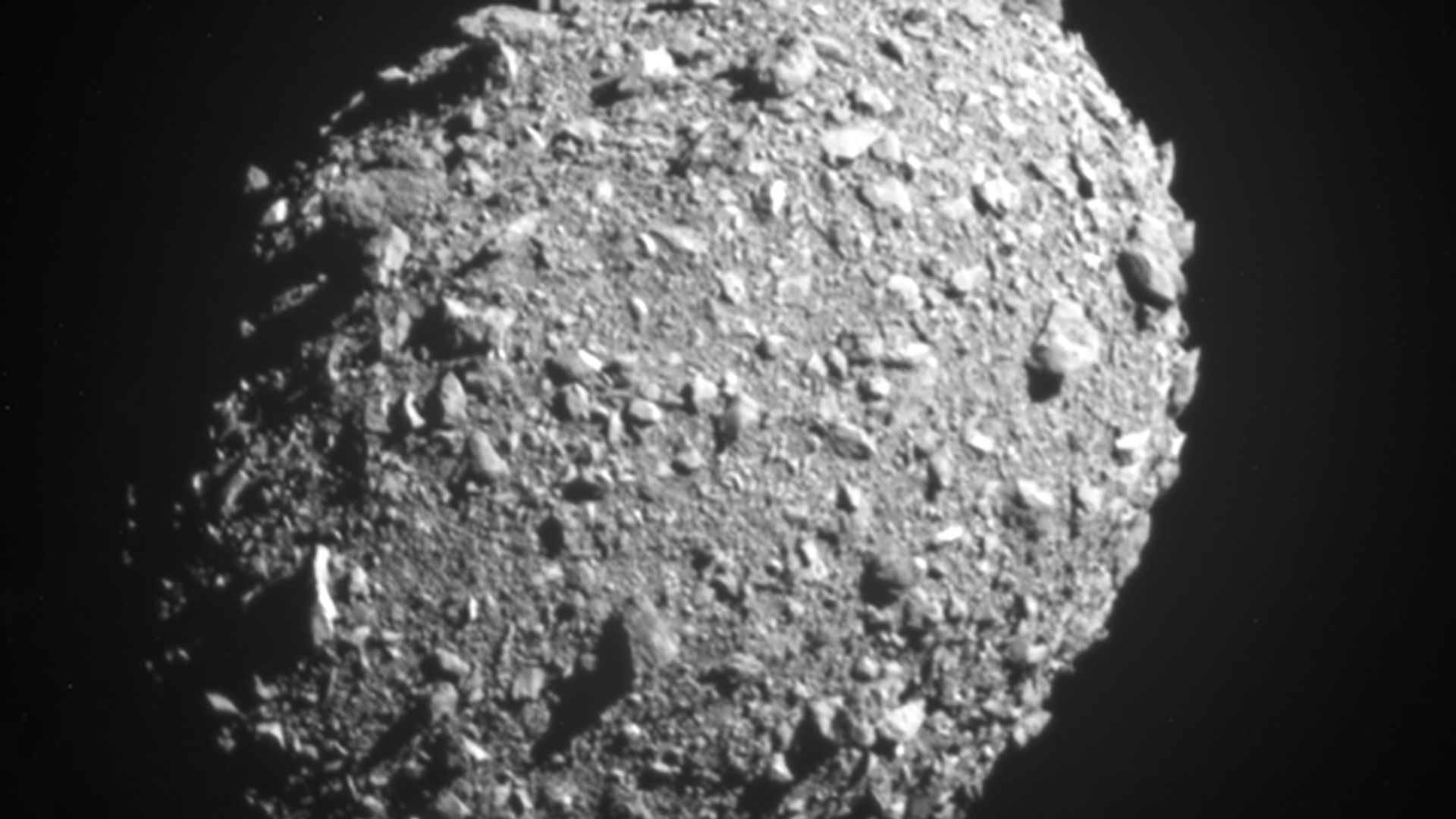https://sputnikglobe.com/20221004/plume-of-dust--debris-spotted-trailing-after-asteroid-hit-by-nasas-dart-mission-1101498197.html
Plume of Dust & Debris Spotted Trailing After Asteroid Hit by NASA's DART Mission
Plume of Dust & Debris Spotted Trailing After Asteroid Hit by NASA's DART Mission
Sputnik International
Astronomers intend to keep monitoring the asteroid’s dust trail by using the Southern Astrophysical Research Telescope. 04.10.2022, Sputnik International
2022-10-04T12:08+0000
2022-10-04T12:08+0000
2022-10-04T13:18+0000
science & tech
nasa
asteroid
redirection
test
results
https://cdn1.img.sputnikglobe.com/img/07e6/09/1c/1101294748_0:228:1041:814_1920x0_80_0_0_0c88b0c84fd39c84fb69514f44ced65d.png
Days after US National Aeronautics and Space Administration (NASA) commenced its Double Asteroid Redirection Test mission by deliberately ramming a spacecraft into an asteroid in an attempt to change its orbit, astronomers on Earth are gauging the results of this experiment.Using the 4.1-meter Southern Astrophysical Research (SOAR) Telescope at the Cerro Tololo Inter-American Observatory in Chile, astronomers Teddy Kareta from the Lowell Observatory and Matthew Knight from the US Naval Academy spotted a vast trail of dust and debris originating from the Dimorphos asteroid hit by the DART.According to SciTechDaily, the ejecta spotted by the astronomers appeared to stretch for about 10,000 kilometers from the point of impact.Knight also mentioned that they intend to use the SOAR to monitor the ejecta “in the coming weeks and months,” and that the combination of SOAR and the Astronomical Event Observatory Network (AEON) is “just what we need for efficient follow-up of evolving events like this one.”On September 26, NASA’s DART spacecraft collided with the asteroid Dimorphos in a bid to determine whether a space rock’s orbit could be altered via a kinetic impact.While neither Dimorphos nor the larger asteroid Didymos it orbits pose a threat to Earth, NASA scientists wanted to establish whether the method they employed could help steer potentially hazardous asteroids clear of our planet in the future.
https://sputnikglobe.com/20220927/nasas-dart-spacecraft-hits-asteroid-as-part-of-planetary-defense-test-mission-1101252436.html
Sputnik International
feedback@sputniknews.com
+74956456601
MIA „Rosiya Segodnya“
2022
News
en_EN
Sputnik International
feedback@sputniknews.com
+74956456601
MIA „Rosiya Segodnya“
Sputnik International
feedback@sputniknews.com
+74956456601
MIA „Rosiya Segodnya“
science & tech, nasa, asteroid, redirection, test, results
science & tech, nasa, asteroid, redirection, test, results
Plume of Dust & Debris Spotted Trailing After Asteroid Hit by NASA's DART Mission
12:08 GMT 04.10.2022 (Updated: 13:18 GMT 04.10.2022) Astronomers intend to keep monitoring the asteroid’s dust trail by using the Southern Astrophysical Research Telescope.
Days after US National Aeronautics and Space Administration (NASA) commenced its Double Asteroid Redirection Test mission by deliberately ramming a spacecraft into an asteroid in an attempt to change its orbit, astronomers on Earth are gauging the results of this experiment.
Using the 4.1-meter Southern Astrophysical Research (SOAR) Telescope at the Cerro Tololo Inter-American Observatory in Chile, astronomers Teddy Kareta from the Lowell Observatory and Matthew Knight from the US Naval Academy spotted a vast trail of dust and debris originating from the Dimorphos asteroid hit by the DART.
According to SciTechDaily, the ejecta spotted by the astronomers appeared to stretch for about 10,000 kilometers from the point of impact.
“It is amazing how clearly we were able to capture the structure and extent of the aftermath in the days following the impact,” Kareta said.
Knight also mentioned that they intend to use the SOAR to monitor the ejecta “in the coming weeks and months,” and that the combination of SOAR and the Astronomical Event Observatory Network (AEON) is “just what we need for efficient follow-up of evolving events like this one.”

27 September 2022, 00:05 GMT
On September 26, NASA’s DART spacecraft collided with the asteroid Dimorphos in a bid to determine whether a space rock’s orbit could be altered via a kinetic impact.
While neither Dimorphos nor the larger asteroid Didymos it orbits pose a threat to Earth, NASA scientists wanted to establish whether the method they employed could help steer potentially hazardous asteroids clear of our planet in the future.




